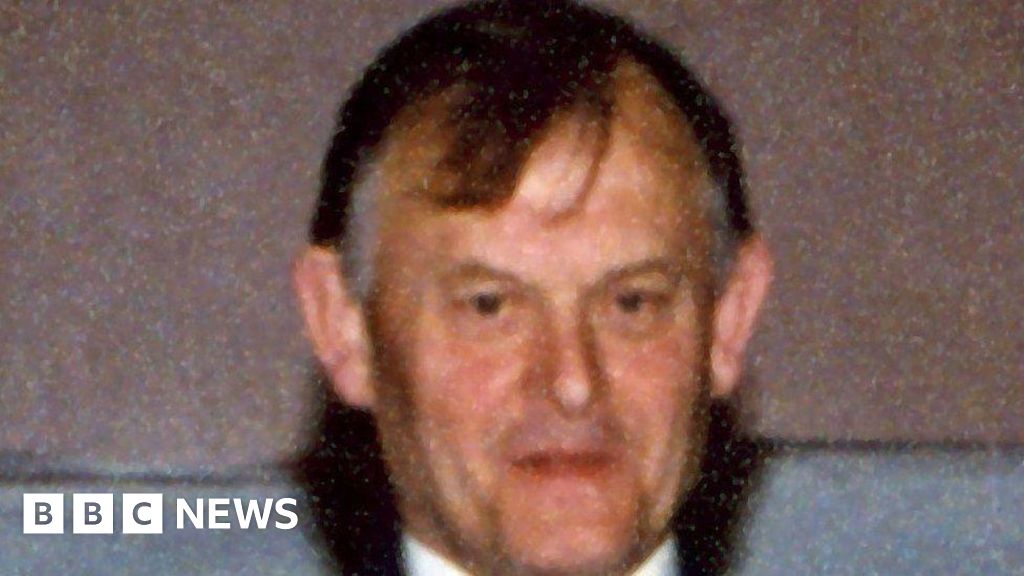The Ongoing Fight for Justice: The Case of Sean Brown
In the annals of Northern Ireland’s troubled history, the abduction and murder of Sean Brown stands as a haunting reminder of the violence that plagued the region during the Troubles. Sean Brown, a dedicated GAA official, was abducted and murdered in 1997, and the quest for justice surrounding his death remains unresolved. Recently, the Brown family faced another setback when the government rejected a coroner’s request for a public inquiry into the circumstances of his murder, leaving them "utterly devastated."
A Tragic Loss
Sean Brown was 61 years old when he was kidnapped by members of the Loyalist Volunteer Force (LVF) near Randalstown, County Antrim. He was locking the gates of the Bellaghy Wolfe Tones GAA club when he was taken. His body was later discovered in a burnt-out car, a grim conclusion to a violent act that shocked the local community and beyond. The brutality of his murder was emblematic of the sectarian violence that characterized the era, and it left a profound impact on his family and friends.
The Family’s Ongoing Struggle
In the wake of the government’s refusal to hold a public inquiry, Sean Brown’s family has expressed their determination to continue their fight for justice. Clare Loughran, Mr. Brown’s daughter, articulated the family’s resolve, stating, "We are never going to give up." The family has faced numerous challenges over the past 27 years, and this latest decision has been described as one of the lowest points in their long journey for truth and accountability.
The Northern Ireland Secretary, Hilary Benn, expressed sympathy for the Brown family but maintained that a public inquiry was "not the best way to proceed." This response has been met with disappointment from the family, who feel that their quest for justice has been ignored. They argue that a public inquiry would provide an independent platform to investigate the circumstances surrounding Sean’s murder, allowing them to call witnesses and seek answers.
The Coroner’s Request
In February, it was revealed that over 25 individuals, including state agents, were linked to the murder of Sean Brown. This revelation prompted Coroner Mr. Justice Patrick Kinney to advocate for a public inquiry, stating that it was "the appropriate way" to examine the full circumstances of the killing. His written request to the government was backed by the Chief Constable of the Police Service of Northern Ireland (PSNI), Jon Boutcher.
However, the government’s response has left the Brown family feeling frustrated and disillusioned. They believe that the decision disregards the explicit direction of a High Court judge who had reviewed sensitive information related to the case. The family has vowed to challenge this decision through a judicial review, scheduled for September 26.
The Role of the ICRIR
In his statement, Secretary Benn suggested that the Independent Commissioner for Reconciliation and Information Recovery (ICRIR) could provide a pathway to justice. He encouraged the Brown family to engage with the ICRIR to discuss how they would approach an investigation into Mr. Brown’s death. However, Clare Loughran expressed skepticism about the independence of the ICRIR, citing concerns that revelations about state agents had been concealed for decades.
The family’s solicitor, Niall Murphy, emphasized their disappointment with the government’s decision, describing it as "unlawful, irrational, or unreasonable." He noted that while the family is disheartened, they remain stoic in their pursuit of justice.
The Broader Context
The case of Sean Brown is not an isolated incident but part of a larger narrative of unresolved murders and disappearances during the Troubles. Many families continue to seek answers about the fate of their loved ones, and the lack of accountability for past violence remains a contentious issue in Northern Ireland. The Brown family’s struggle highlights the ongoing need for transparency and justice in a society still grappling with the legacy of conflict.
Conclusion
As the Brown family prepares for their judicial review, their unwavering commitment to uncovering the truth about Sean Brown’s murder serves as a poignant reminder of the enduring impact of the Troubles on individuals and families. The rejection of a public inquiry may have been a setback, but it has only strengthened their resolve to seek justice. The fight for accountability continues, and the Brown family remains determined to ensure that their father’s legacy is honored through the pursuit of truth and justice.
